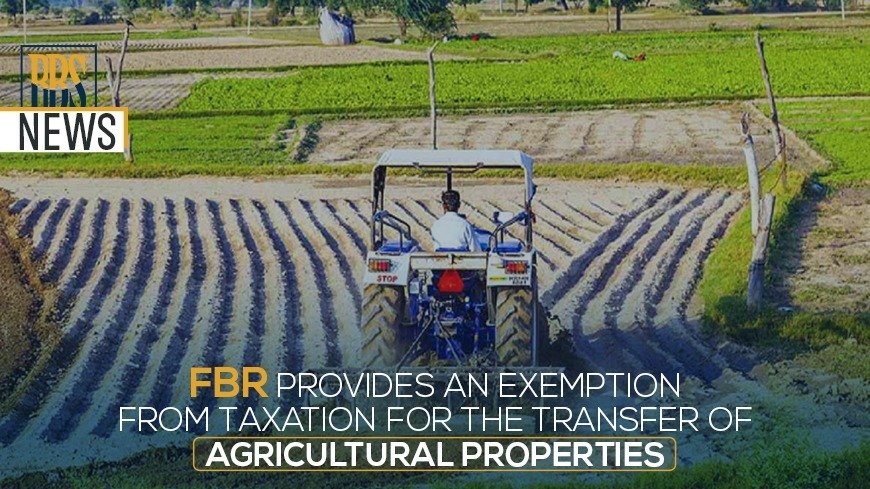- August 24, 2023
- Posted by: Muhammad Shehzad
- Category: RBS News

The Federal Board of Revenue (FBR) has announced a considerable tax exemption for the transfer of agricultural properties in an effort to boost the rural economy and provide relief to agricultural stakeholders.
News Declaration
The Federal Board of Revenue (FBR) has announced that agricultural properties, excluding farmhouses, will not be subject to taxation under Section 7E of the Income Tax Ordinance 2001, according to news published in the national dailies on August 17.
FBR Clarification
In Circular No. 3 of 2023, the FBR has clarified the application of Section 7E to farmhouses. Agricultural properties owned by individuals engaged in agriculture activities will not fall under the provision of Section 7E of the Ordinance, except for farmhouses and the attached land constructed on agricultural land.
Read: FBR Plans To Launch An Online Service To Grant Exemptions And Collect 1% Tax On Immovable Property
Immovable Property
Furthermore, if the immovable property under sale or transfer is an agricultural property (excluding farmhouses) and evidence through proper property documents, the transferring authority will execute the transfer without requiring evidence of tax payment under section 7E or Form-A, as per Circular No. 01 of 2023-24.
However, if a property includes one or more farmhouses constructed on agricultural land, the conditions outlined in Circular No.1 of 2023-24 will apply to such farmhouses after necessary adjustments.
Farmhouse as Residential Unit
The FBR, therefore, defines a farmhouse as a home with a covered space of at least 5,000 square feet and a minimum lot size of 2,000 square yards. Certainly, it is utilized as a single residential unit, annex or not. Each of these units will be regarded as a separate farmhouse. Although, there are numerous dwelling units in a compound, the average compound. The area is larger than 2,000 square yards for each dwelling unit.
Conclusion
FBR’s decision to provide a tax exemption for the transfer of agricultural properties is a commendable step. It marks revitalizing the rural economy and empowering the agricultural sector. As this policy unfolds, its impacts on both rural communities and the broader national economy will closely observing. Furthermore, FBR has the hope that it will mark a significant stride toward a prosperous agricultural future.
